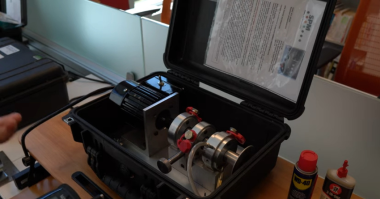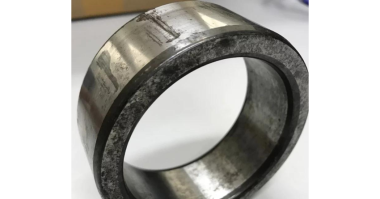Tor and Owe are here to give you even more information about your role as an Operations Maintenance Coordinator (OMC). If you are curious about other roles, check out the rest of the videos in our “What Is My Job” series.
“Hello, this is Tor from IDCON. I’m here today with Owe Forsberg, and today we’re going to talk about the role of an Operations Maintenance Coordinator. This is in the series that we have here on YouTube. We have several roles we’ve talked about.
Today we’re talking about OMC. There’s another video on Youtube from our training seminar where Terry Taylor talks about the Operations Maintenance Coordinator as well. I’m going to start with the name. We at IDCON call it “Operations Maintenance Coordinator” (OMC). It’s a bit of a long name. Some people call it “Filter” or “Gatekeeper” but it’s the same thing, maybe some small variances there. But let’s talk about the main purpose.
Why do we really need a gatekeeper?
Maintenance needs a good way to communicate with operations and schedule work. You have one point of contact. Normally, you see people talking to the process engineer, the shift supervisor, the operations manager or maybe other staff/people in operations. It gets very confusing.
What is communication? What are we going to do? Who knows what? That’s the kind of problem that you see sometimes. Because then you have ten people getting work requests. How do we prioritize them? How can we coordinate all those work requests? Everybody gets to screaming. Whoever screams the loudest gets their work done.
Also, you have a production schedule and you have that maintenance schedule. Someone from operations has to. With maintenance, we can’t just go in and start doing maintenance work when is equipment down. Someone has to tell us when the equipment is down. There has to be one point of contact that says, okay, at 4:00 tomorrow, we’re going down, right?
The idea is to maximize the output of the production. That’s why maintenance is there too. I think this is a supercritical role in the whole work management, planning, and scheduling process. If we don’t have this one point of contact, we can never get any order done.
Can you describe where in the work process we have a bunch of work requests coming in and describe where the OMC fits in?
The OMC should be the person that filters those requests. A lot of times we think it’s best practice if they do that together with the maintenance supervisor. Because they know the technical aspects. A specialist from operations, the specialist for maintenance together with the coordinator needs to make sure they understand the scope of work.
Is there some approval that needs to be involved in terms of cost? I think the priority is important here. What is the priority? Do we need to do it today? Do we need to do it in the next few months?
We will have a bunch of work requests coming in, and the Operations Maintenance Coordinator (OMC) and the supervisor sit down, to go through those work requests and puts priority on them, clean out duplicates, and which one doesn’t need to be done.
You get a little bit of cost control there, too, because we had ten work orders from last night and we can say these three we’re not going to do.
A good thing to do with your backlog is a quick estimate of what needs to be done and how much time it will take. Then you can plan to do a work order later to get a more detailed estimate. Then you can start looking at your backlogs, to see about how much work you have. You can say “We have ten weeks of work” or “We have 100 weeks of work.”
Income from work requests. The other part of that is, if we don’t understand the scope, we might want to go back to the requester.
What work is scheduled for next week? What is the work that needs to be planned for the next four weeks? They also need to be part of the planning and scheduling of meetings. These meetings may be separately or as one meeting.
Sometimes when you’re in a reactive environment, it’s hard to focus on the planning part. When you just want to schedule work to get it done. Most work requires that you have all the parts, the scaffolding, the right people, or a contractor. You can’t do that on the same day most of the time.
I’ve seen this role changing a bit over time. If we’re in an extremely reactive situation, this role is new and has to be pretty strong in the beginning and very it has to be like a referee. “You can’t have this done now.” But as we mature that changes.
I think in that reactive environment, the coordinator, or the operations and maintenance coordinator, need to screen all the emergency workers coming down. Because you don’t want everything turns to be priority one.
When you plan and schedule work, to keep these guys effectively doing the scheduled work, you need somebody to them from getting interrupted.
What we see many times is that the supervisor loses time on the planned and scheduled work.
Do you see this as a “role” or do you see this as a full-time or part-time position? No, I think if you’re a large organization with several units, each unit needs a role that does this. I think it’s a full-time position, for the most part.
There are other things this person needs to do like making sure equipment is prepared for maintenance. Lockouts are another delay we see a lot because lockouts are not done in a timely manner.
I’ve seen in smaller organizations may have six or seven people in maintenance and then maybe a part time position is smarter. But otherwise, for the most part. It should be a full-time position.
I want to go back to lockout and tagout. This person is also responsible for lockouts. The fourth thing is to make sure that we lockout/tagout and get equipment ready for maintenance.
One thing we have experienced was a short shutdowns in a paper mill, they were delayed many times and then operations started asking, why are we having delays?
Well, we can start looking at that. It’s because the lockout was the responsibility of the operation. Causing the startup to be delayed. By having the coordinator there, we have most of the lockouts done in a timely manner. That was kind of a gain. We saw at least a couple of hours of production gained since the start-up was done quickly. That was a pretty quick win. We implemented the OMC and for the first shutdown, we’re cutting two off the shutdown. That’s $30,000 in pure profit. That’s an expensive extra cup of coffee if we don’t do that. It could have been a 12 hour shutdown or a 1 5shutdown. Even, 2 hours is actually a lot of time.
Anything else we need to know about the OMC? There are a lot of things, such as meetings, details and that. But just for the role, I think we have a pretty clear understanding.
Screening the work, understanding the work, helping schedule the work, and setting priorities for the plan are the main functions of the OMC.”




Comments